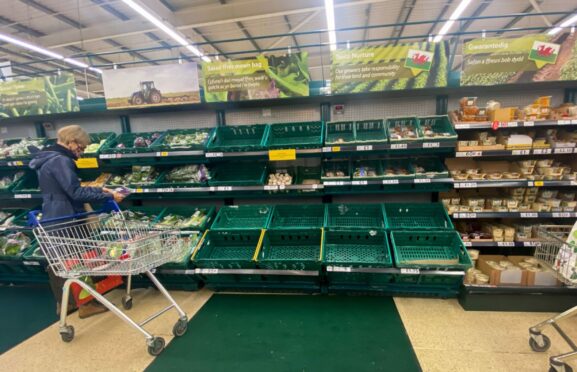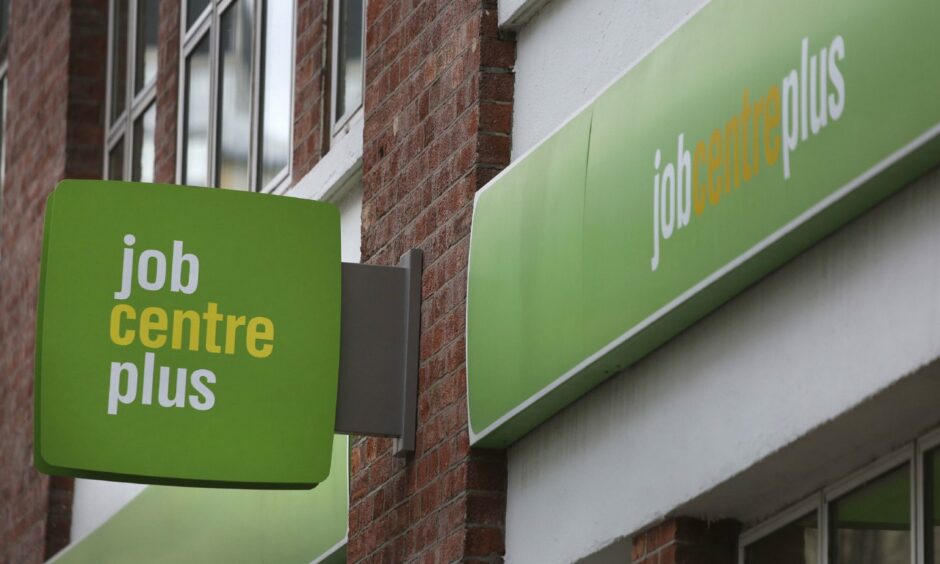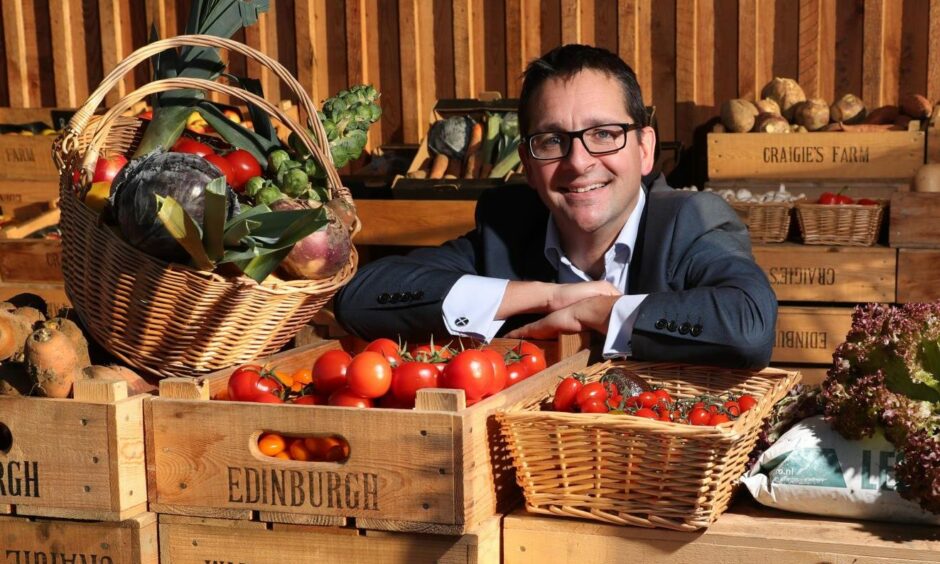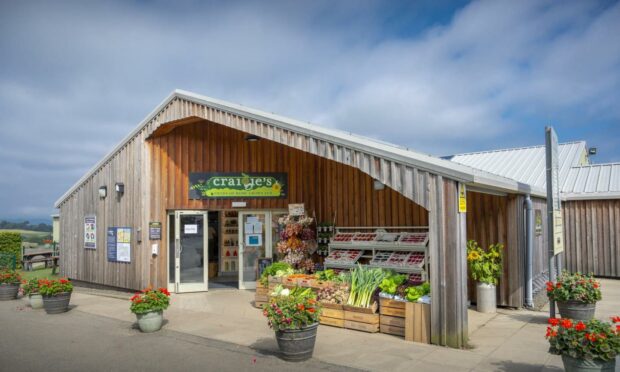The ongoing labour crisis, which has caused empty supermarket shelves and animals backed up on farms waiting for slaughter, will continue until the UK Government rethinks its post-Brexit immigration policy, claim industry leaders.
That was the stark message delivered to farmers at an online meeting, organised by farming union NFU Scotland (NFUS) to discuss the current labour crisis.
A lack of workers has resulted in hundreds of thousands of pounds of vegetables rotting in fields and more than 100,000 pigs sitting on British farms waiting for slaughter, as well as empty supermarket shelves and petrol stations running dry.
Representatives from the road haulage, farming, food and drink, and tourism sectors said businesses in their industries were all competing to fill vacancies from a limited pool of potential UK employees.
NFU England and Wales horticulture chairman Ali Capper, who farms in Worcestershire, said the British horticulture and potato sectors needed around 80,000 workers a year.
She said the government’s Seasonal Pilot Scheme – which currently allows up to 30,000 overseas workers to come to the UK to work on farms on a temporary basis – needed to be extended to 50-60,000 workers for 2022.
The Government has previously criticised the sector for not using all of the 30,000 worker permits available to it, however Ms Capper said two new scheme operators had been put in an “almost impossible situation” by only being granted their licences in May.
“We have been asked as a sector to recruit domestically,” said Ms Capper.
“All 70 of our jobs went to the local job centre. We had nine responses and only one person was still looking for a job in a week. I don’t understand where they [government] think these people are going to come from.”
Scotland Food and Drink chief executive, James Withers, said the last 18 months had been a nightmare for everyone involved in the sector.
He said: “The industry has called for a Covid Recovery Visa in an attempt to get something in place to highlight the gaps [in the workforce].
“There’s not a massive pool of an untapped domestic workforce for us to tap into. The idea of just hiring more locals or just paying more does not stand up to scrutiny.”
He called on affected industries to join forces and said: “We need to collectively push for a smarter immigration policy.”
Road Haulage Association director for Scotland, Martin Reid, said the recent announcement of an additional 10,500 visas for temporary overseas workers for the haulage and poultry industries was “no use” because the workers would need to leave the country by December 24.
He said: “There’s little doubt that Christmas is at risk; there’s no measures in place to help that.”
Scottish Tourism Alliance chief executive, Marc Crothall, said concerns about staff shortages “seem to fall on deaf ears” at Government.
John Sinclair, who runs Craigies Farm Shop on the outskirts of Edinburgh, said he was struggling to recruit staff despite increasing wages.
Mr Sinclair told the meeting: “Our head chef position was on £26,000 pre-Covid for a 50-60 hour week; now on around £40,000 and only wants to work 30 to 35 hours and not a Saturday and Sunday.
“We have gone through four head chefs in the last four months.”
NFUS president, Martin Kennedy, said the labour problems would continue until the government delivered a meaningful solution to the problems.
He said: “We are in a hand to mouth situation. The UK Government will have to back down, but the reality is that sadly it will be too late for a number of businesses.”
A UK Government spokesman said: “We have expanded the Seasonal Workers Pilot to 30,000 visas to allow workers to enter the UK for up to six months to support our edible horticulture sector.
“We are keeping the market under close review and we will continue to work closely with the sector to explore options to address the pressures industry is currently facing.”



